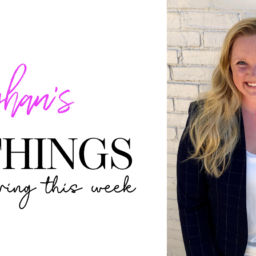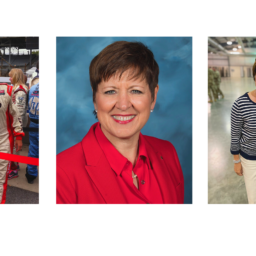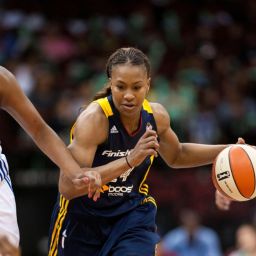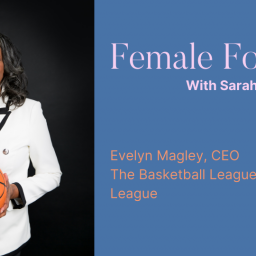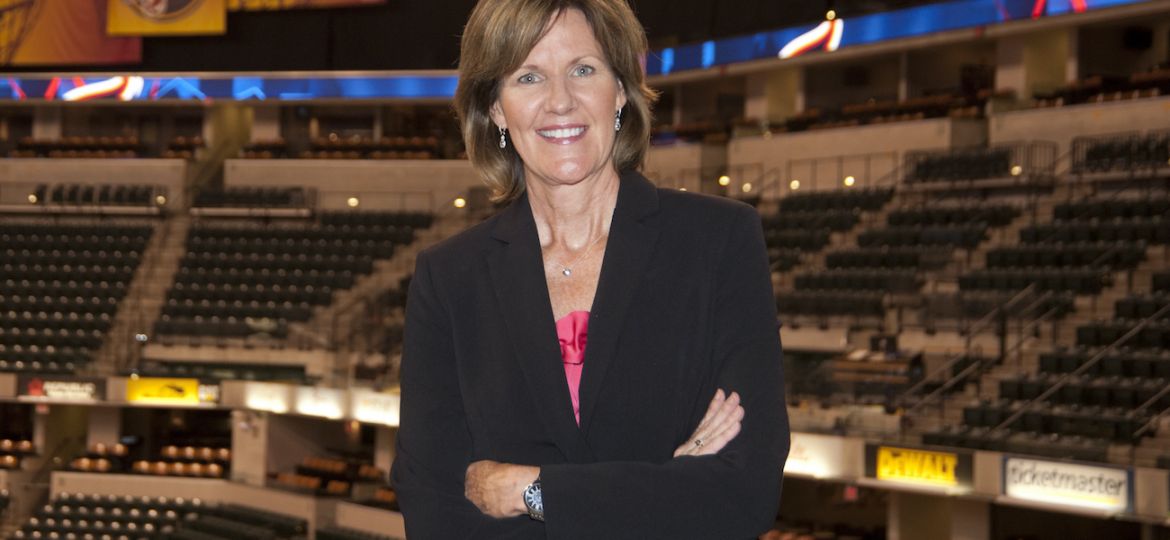
In December 2018, the Indiana Pacers made NBA history by naming Kelly Krauskopf as the league’s first female assistant general manager. “As the architect of one of the WNBA’s most successful franchises, Kelly is a true pioneer in our sport,” Pacers Sports & Entertainment owner Herb Simon said at the time. “I’ve worked with Kelly over the past two decades, so I know her tremendous basketball mind, strong work ethic and proven leadership skills will continue to be of great benefit to our organization.”
Krauskopf, a former college basketball star at Texas A&M, was more than qualified for the position having served as president and general manager of the WNBA’s Indiana Fever for 17 years, as well as overseeing the Pacers NBA2K league.
She’s the definition of everything we love here at Indy Maven and we couldn’t wait to talk to her about her first year on the job, any pushback she’s faced as a woman in a male-dominated field, and what we should be excited about during the back half of the Pacers’ season.
Here’s to more women in sports (and every other male-dominated field) in 2020 and beyond.
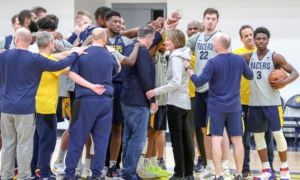
Tell us a little bit about the scope of your role?
As assistant general manager, I am a member of our executive management team, where I primarily work with the President and GM on roster development. That includes scouting personnel, weighing in on player trades, free agent acquisitions, and exploring other roster development opportunities. There are also internal team and staff meetings and oversight of our player relations area. I also provide leadership for our Pacers marketing staff for player and team branding, identity, and free agent recruiting.
It’s been a little over a year since you became an Assistant GM for the Pacers. What have been the biggest takeaways you’ve had in transitioning from the WNBA to the NBA?
The interesting thing is that there are more things that are the same than are different. Being the leader of a franchise for 19 years gave me the experience and skill set that was transferable to an NBA team and to many other businesses. The gender difference of the athletes is an obvious difference, along with the long history and developed culture of the NBA, but everything about putting rosters together from scouting, player decisions, team culture building, day-to-day team and franchise concerns, and staff concerns are the same. The other obvious difference is the size of the player contracts and the salary cap restrictions, as well as the tremendous amount of resources and staff that the Pacers/NBA have.
“Many male athletes are raised in families with strong, smart, confident women, so to them, if you know your stuff, you have as much to bring to the table as the guy standing next to you.”
How did your background as an athlete helped prepare you for your career, outside of the deep knowledge of basketball?
To be able to have a career in the sport that I love and played as a scholarship athlete at Texas A&M has been a blessing. Growing up as an athlete has given me perspective around what our players may be going through and how they are feeling throughout the season. I have a lifetime of experience in building teams both on the court and off. My leadership style is built on collaboration and being an athlete has taught me that. There are 144 women and 450 men who are the best players in the world and I am fortunate that my career path has led me to both.
After working several years in college athletics, I was hired by the NBA to begin working on developing the WNBA 23 years ago. As the league’s first basketball operations director I was able to have many NBA execs serve as mentors, which prepared me to build and lead my own WNBA franchise and ultimately to an NBA front office. I feel blessed every day that I actually get to work in a sport that has given me so much.
What are some of the biggest changes for women that you’ve seen in the sports world?
I believe we are just now experiencing an era where opportunities for women in the sports world have begun to take off, but there is still such a long way to go. There are more young women aspiring to enter the sports industry, not just in coaching or management, but also other areas such as broadcasting, data analytics, legal, sports performance, athletic training, and others. As a matter of perspective, the NBA has been operating for 73 years and the WNBA only 23 years. That’s a 50-year head start for men in the professional ranks where teams and front offices have been traditionally staffed by men.
Now with the WNBA providing a training ground of sorts, the opportunities to transfer that level of experience is available. As women enter any male-dominated industry, like NBA front office executive positions, their competency and contributions are questioned. I hope that once more women are hired, there will be less of the “prove it” mentality.
You’re the first woman to hold your role in the NBA. Do you feel an added responsibility because of that fact? How did you approach being a trailblazer?
When I was asked by Kevin Pritchard to join his staff, I honestly didn’t think of it as a “trailblazer” opportunity. I saw it as a new challenge in my career and the chance to work in the premier sports league in the world. I knew that I brought 20-plus years of team leadership experience combined with running a business, so I was confident that I was qualified.
I do understand the significance of being the first female in terms of providing young girls the opportunity to see a role model. So I don’t take that lightly. Boys grow up knowing that every facet of business leadership is an option because that is what they have seen. There has never been any job that was “off limits” for a guy. I believe that just like boys who have grown up seeing men in positions of leadership, it’s important for girls and young women to see what is possible as well. Women bring just as much talent and capability. We only need a chance.
So many girls and women can look at you and say, “I can do that too.” What
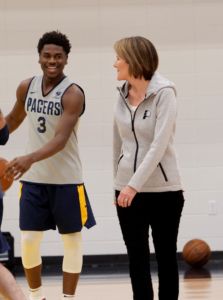
advice would you give them about breaking down barriers in the professional world, whether that’s in sports or elsewhere?
My mantra is, “Anything is possible” and I truly believe for this next generation of girls, the doors are opening. Your work ethic and passion will be important as well as self-confidence. The sports business is all-consuming and really becomes a lifestyle. I would say be prepared to stand alone and face some isolation at times. It’s not easy being the only female. You must have a strong personal network behind you to lean on. Remember that every encounter you have when you are working your way through is making an impression on someone in the room. That person could be your next boss, your staff colleague or someone you will end up negotiating a deal with. Your work ethic, integrity, and how you treat others will be very important. Stay positive and don’t let anyone tell you that you can’t do it.
Have you met with any resistance to your role around the league?
I don’t know if it was resistance but there is a feeling at times of some men being threatened by a female taking one of “their jobs.” Guys are competitive, so my hiring presented another competitive factor. I understand it and handle it by just doing the work as I have always done. I have been in situations early in my career where guys were not so thrilled to have a woman at the table, so it’s nothing new.
The interesting part is that the players themselves see me as just another basketball executive. My relationship with the team has been just like my relationship with my women’s teams. Athletes are athletes and they are driven by perfecting their craft and seeking ways to get better from whomever they can. Many male athletes are raised in families with strong, smart, confident women, so to them, if you know your stuff, you have as much to bring to the table as the guy standing next to you.
Finally, what should Pacers fans be excited about as we look ahead to the back half of the season, post-All Star Break? And the future of the team in general?
Indiana should be very proud of this Pacers team. We have a tremendous group of players who represent our city and state in a first class way. Along with our returning players, we have seven new players and they have done a great job of winning games while getting to know each other. Team chemistry on the floor takes time and we think we have a group of players who can take us to the next level in the playoffs. The second half of the season as we go on a playoff push should be really good, so I would encourage fans to get out and support this team.
Abby Gardner is the executive editor of Indy Maven and a lifelong Pacers fan whose favorite ’30 for 30′ documentary is obviously Winning Time: Reggie Miller vs. the New York Knicks.








